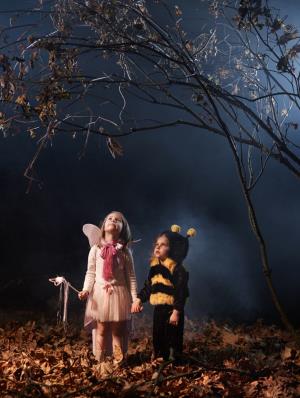
When we tell our children tales of the Tooth Fairy or Father Christmas are we indulging a beautiful fantasy or just fibbing? If you consider the role that fantasy and imagination play in children’s lives, it is definitely the former.
How fantasy helps to develop intellect and creativity
Fantasy and imaginative play are building blocks of children’s intellectual and creative ability. Reality and fantasy are interlinked. A child uses fantasy to visualise a goal, or perhaps think about how they could have done something differently in a particular situation. Fantasy also brings out a sense of wonder they will hopefully carry through to adulthood. The ability to use our imaginations and suspend reality is something that feeds into our enjoyment of books and films and makes us feel creative.
Imagination has academic benefits too. At school we introduce children to images they may have no experience with. If a Grade 0 class is studying life in the Arctic, the children who are less inclined toward make-believe may have a harder time visualising how an igloo is made.
But parents do need to modify the fantasy that is presented to our children by outside sources. We are very much the filter for our children, so that anything that we allow in, such as television, internet and video games, should be mediated through us. We need to ensure they come with value statements and rules that are appropriate to the family. In some cases we need to spell out the difference between reality and fantasy.
Fantasy and imagination play different roles in our children’s lives at different ages.
Between the ages of 3 and 6
Imagination blossoms and children are at their most engaged in fantasy and imaginative play. As a parent you can encourage this by ensuring they have dress up clothes, and other props to support the fantasy.
Between 7 and 9 years
Children shift cognitively and become far more concrete and realistic in their approach to life. This is the age of scepticism, when your little one may well realise that Father Christmas isn’t really real. However, children of this age often remain quite significantly engaged in fantasy and imagination, using verbal skills, dancing and acting to play out different scenarios.
Between 10 and 12 years
As children head towards their teenage years between 10 and 12, fantasy and imagination play a lesser role in their daily lives. That said, well-chosen books and movies still engage “tweens” in fantasy, while they may also be more interested in developing their own creative abilities through art, acting creative writing.
Imaginary friends
Imaginary friends sometimes concern parents. But imaginary friends are a healthy way for children to help themselves resolve certain social and emotional stages. Often when children are in a state of anxiety or fear at a particular time, they will create an alternative friend as part of themselves to get through it. When they don’t need that support anymore, that friend disappears.
Fantasy or lies?
Truth and lies also need to be considered when we actively encourage our children’s fantasies about the Tooth Fairy or the Easter Bunny. Children are able to distinguish fantasy and reality at a young age, but some may be tempted to spin tall tales themselves. This is when parents need to reinforce the difference between “pretending” and “lying”.
You may have your own twinges of conscience in this regard: “But is Father Christmas real, Mom?” When faced with the inevitable question, try and get a sense of whether the child wants reassurance or the truth. This depends a lot on the age of the child.
Ultimately, what you tell your children is a personal decision. Every family stands for certain values, beliefs and customs and parents are the filter for that continuum. Human beings have a gift for fantasy which shows itself at a very early age and makes all sorts of contributions to our intellectual and emotional life throughout our lives.
Read more:
Fire up your child's creativity
How kids can benefit from boredom
Fun ways to make your kids smarter during the holidays
How music-inspired free play can nurture young creative minds
What do you tell your children about the Easter Bunny, Santa and the Tooth Fairy? At what age did they realise it was just a story? Share your stories and we may publish them: send to chatback@parent24.com.




 Publications
Publications
 Partners
Partners














